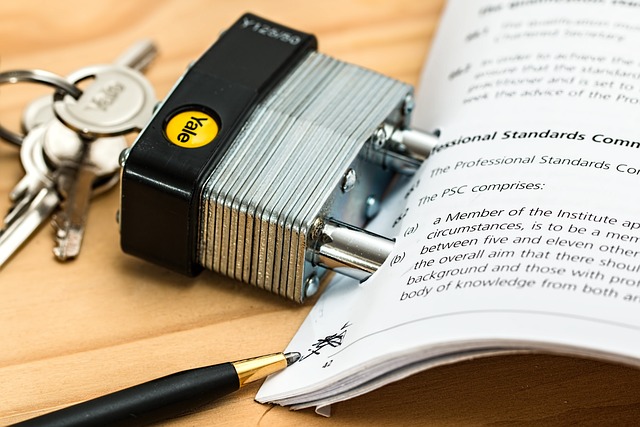Are you a business owner or entrepreneur looking to enter into new contracts? It’s important to protect your interests and ensure that you have a thorough understanding of the legal implications involved. In this article, we’ll explore how a lawyer can be an invaluable resource in navigating the complexities of business contracts. From drafting and reviewing agreements to providing expert guidance, a lawyer can safeguard your interests and help you avoid potential pitfalls. So, if you’re ready to take your business to the next level and want peace of mind when entering into contracts, read on and discover how a lawyer can assist you every step of the way.
Understanding Business Contracts
What is a business contract?
A business contract is a legally binding agreement between two or more parties that outlines the rights and obligations of each party involved. It establishes the terms and conditions under which a business relationship will be conducted and provides a framework for resolving any disputes that may arise. Business contracts can encompass a wide range of agreements, such as sales contracts, employment contracts, partnership agreements, and vendor contracts.
Why are business contracts important?
Business contracts are crucial in ensuring that all parties involved in a business transaction are on the same page and have a clear understanding of their rights and responsibilities. These contracts provide legal protection and help prevent misunderstandings or disputes down the line. By delineating the terms and conditions of a business agreement, contracts help establish trust and accountability between parties, which is essential for a successful and mutually beneficial business relationship.
Common types of business contracts
There are several types of business contracts that are commonly used in various industries. Some of the most common types include:
-
Sales contracts: These contracts outline the terms and conditions of a sale, including the price, payment terms, delivery details, and warranties.
-
Employment contracts: These contracts specify the terms of employment between an employer and an employee, including job duties, compensation, benefits, and termination clauses.
-
Partnership agreements: These contracts establish the terms of a partnership between two or more individuals or businesses, including profit and loss distribution, decision-making processes, and exit strategies.
-
Vendor contracts: These contracts are entered into with suppliers or service providers and outline the scope of work, pricing, delivery expectations, and any warranties or guarantees.
-
Non-disclosure agreements (NDAs): These contracts are designed to protect confidential information and trade secrets, preventing parties from disclosing or using the information for unauthorized purposes.
Each type of contract will have its own unique set of clauses and considerations, depending on the nature of the business relationship it governs.
The Role of a Lawyer in Business Contracts
Why should you involve a lawyer?
Involving a lawyer in the drafting and negotiation of business contracts is highly recommended to protect your interests and minimize potential risks. Lawyers have the legal expertise and experience necessary to ensure that your contracts are comprehensive, legally enforceable, and reflective of your best interests. They can help you navigate complex legal issues, review and negotiate contracts on your behalf, and provide valuable advice and guidance throughout the entire process.
How can a lawyer safeguard your interests?
A lawyer can safeguard your interests in several ways when it comes to business contracts:
-
Assessing legal risks: A lawyer can identify and analyze potential legal risks associated with the contract, ensuring that you are fully aware of the implications and potential consequences of entering into the agreement.
-
Drafting comprehensive contracts: Lawyers have the necessary skills to draft contracts that cover all crucial aspects of the business relationship, leaving no room for ambiguity or potential disputes.
-
Negotiating favorable terms: Your lawyer can negotiate with the other party to ensure that the contract terms are fair and favorable to you, protecting your rights and interests.
-
Reviewing contract clauses: Lawyers have a keen eye for identifying problematic clauses or loopholes that could be detrimental to your position. They can suggest revisions and modifications to protect your interests.
-
Providing legal advice: Your lawyer can provide professional advice on legal matters relating to the contract, ensuring that you make informed decisions and understand the potential legal implications of the agreement.
Finding the right lawyer for your business
When seeking a lawyer to assist with your business contracts, it’s important to find someone with the appropriate expertise and experience in contract law. Look for a lawyer who specializes in business law and has a track record of successfully handling contract-related matters. It’s also crucial to choose a lawyer who communicates effectively and is responsive to your needs, as good communication is essential for a successful working relationship. Finally, consider the lawyer’s fee structure and make sure it is transparent and reasonable for the services provided.
Key Considerations When Drafting a Contract
Identifying parties and their obligations
One of the first steps in drafting a business contract is clearly identifying the parties involved and defining their respective obligations. This includes specifying the roles, responsibilities, and expectations of each party to ensure that everyone understands their rights and responsibilities under the contract. By clearly defining these obligations, the contract establishes a framework for accountability and minimizes the potential for misunderstandings or disputes.
Defining terms and conditions
A well-drafted contract should include clear and specific terms and conditions that address all relevant aspects of the business agreement. This includes details such as the scope of work, timelines, pricing, payment terms, and delivery expectations. By thoroughly defining these terms and conditions, the contract provides a solid foundation for the business relationship and ensures that all parties are working towards a common goal.
Including payment and delivery terms
Payment and delivery terms are critical components of any business contract, particularly those involving the sale of goods or services. Clearly outlining these terms helps prevent payment disputes and ensures that both parties are on the same page regarding when and how payment should be made and when the goods or services will be delivered. Including provisions for late payment penalties, warranties, and dispute resolution mechanisms in these sections can further protect your interests.
Considering dispute resolution mechanisms
Disputes may arise even with the most well-drafted contracts, so it’s important to include provisions that outline how such disputes will be resolved. This can include mechanisms such as mediation, arbitration, or litigation, depending on the nature of the business relationship and the preferences of the parties involved. By including these provisions in the contract, you can help streamline the resolution process and potentially avoid costly and time-consuming court battles.
Negotiating and Finalizing a Contract
Preparing for negotiations
Before entering into contract negotiations, it’s important to thoroughly prepare and understand your priorities and objectives. Clearly identify your non-negotiable terms and your desired outcomes, as well as any potential compromises you are willing to make. Do your research and gather all relevant information and documentation to support your position during negotiations. By being well-prepared, you can enter negotiations with confidence and a clear understanding of what you are seeking to achieve.
Negotiation strategies
Negotiating a business contract involves a certain degree of give-and-take. It’s important to strike a balance between protecting your interests and being willing to make reasonable compromises to reach a mutually beneficial agreement. Consider employing negotiation strategies such as active listening, exploring creative solutions, and maintaining a positive and professional demeanor throughout the process. Having a lawyer by your side during negotiations can provide invaluable support and guidance to help secure the best possible outcome.
Reviewing the final contract
Before finalizing a contract, it is crucial to thoroughly review the document to ensure that all terms and conditions accurately reflect the agreement reached during negotiations. Pay close attention to details such as grammar, punctuation, and formatting to present a professional and polished final product. Make sure that all necessary clauses are included and that there are no inconsistencies or contradictions within the contract. It’s advisable to have your lawyer conduct a comprehensive review of the final contract to ensure that it is enforceable and in your best interests.
Executing the contract
Once the final contract has been reviewed and deemed satisfactory, it can be executed by all parties involved. Execution typically involves obtaining signatures from each party and may require additional steps such as notarization or witness signatures, depending on the jurisdiction and the nature of the contract. Keep copies of the executed contract for your records and distribute copies to all relevant parties. This marks the official commencement of the business relationship and establishes the legal obligations of each party.
Avoiding Common Pitfalls in Business Contracts
Ambiguity and unclear language
One of the most common pitfalls in business contracts is the use of ambiguous language or unclear terms. This can lead to misunderstandings and disputes down the line. To avoid this, it is essential to use clear, precise, and unambiguous language throughout the contract. Define any technical terms or industry-specific jargon to ensure that all parties have a common understanding of the contract’s terms and conditions. Including a clause addressing interpretation and governing language can further safeguard against ambiguity.
Failure to include necessary clauses
A poorly drafted contract may fail to include necessary clauses that protect your interests. These could include provisions for non-disclosure, intellectual property rights, limitations of liability, indemnification, and termination. Failing to include these clauses can leave you vulnerable to potential legal and financial risks. It is important to work closely with your lawyer to identify all relevant clauses and include them in the contract to ensure comprehensive protection.
Inadequate consideration of potential risks
When drafting a contract, it’s important to anticipate and address potential risks that may arise during the course of the business relationship. Failing to adequately consider these risks can leave you unprepared and exposed to potential harm. Conduct a thorough risk assessment and consult with your lawyer to identify potential risks and include appropriate provisions in the contract to mitigate these risks. By addressing potential risks upfront, you can better protect your interests and minimize the likelihood of disputes.
Failure to update contracts
Business relationships and circumstances can change over time, and it’s important to ensure that your contracts reflect these changes. Failure to update contracts as necessary can lead to outdated terms and conditions that no longer accurately reflect the realities of the business relationship. Regularly review your contracts and consult with your lawyer to determine if any updates or amendments are required. By keeping your contracts up to date, you can maintain clear and enforceable legal agreements that protect your interests.
Enforcing and Terminating a Contract
Understanding contract enforcement
contract enforcement refers to the process of ensuring that all parties involved adhere to the terms and conditions outlined in the contract. If a party fails to fulfill their obligations under the contract, the injured party may seek legal remedies to enforce the contract and seek compensation for any damages suffered. Understanding the mechanisms for contract enforcement, such as dispute resolution clauses or relevant laws, is crucial in protecting your rights and preserving the integrity of the contract.
Remedies for contract breaches
In the event of a contract breach, there are several remedies available to the injured party. These may include seeking monetary damages, specific performance (requiring the breaching party to fulfill their obligations), or injunctive relief (preventing the breaching party from taking certain actions). The appropriate remedy will depend on the nature of the breach and the desired outcome sought by the injured party. Consulting with a lawyer can help determine the most appropriate course of action and maximize your chances of achieving a favorable resolution.
Options for contract termination
There may be instances where it is necessary or desirable to terminate a contract before its agreed-upon expiration date. Common options for contract termination include mutual agreement, expiration of the contract term, breach of contract by one party, or the occurrence of certain events specified in the contract. It is important to carefully review the contract provisions regarding termination and consult with your lawyer to determine the best course of action. Terminating a contract improperly or without valid grounds can have legal consequences and potentially lead to disputes or litigation.
Legal consequences of contract termination
Terminating a contract can have legal consequences and may result in various outcomes, depending on the circumstances and provisions of the contract. These consequences can include potential liability for damages, the loss of rights or benefits afforded by the contract, and the potential for legal disputes or litigation. It is crucial to carefully review the termination provisions in the contract and consult with a lawyer to ensure that you are fully aware of the potential legal consequences before proceeding with termination.
Legal Protections for Your Interests
Non-disclosure agreements (NDAs)
Non-disclosure agreements, or NDAs, are contracts that protect sensitive and confidential information shared between parties. They ensure that the recipient of the information agrees to keep it confidential and prohibits them from disclosing or using the information for unauthorized purposes. NDAs are commonly used when sharing proprietary business information, trade secrets, or other confidential information that could be harmful if disclosed to competitors or the public.
Non-compete agreements
Non-compete agreements are contracts in which one party agrees not to engage in competitive activities within a specified geographic area or industry for a certain period of time. These agreements are often used to protect businesses from competition by key employees, contractors, or business partners who may have access to sensitive information or trade secrets. Non-compete agreements can help safeguard a company’s intellectual property and prevent unfair competition.
Indemnification clauses
Indemnification clauses are contractual provisions that allocate the responsibility of covering certain costs or losses between the parties involved. These clauses typically state that one party will compensate the other for any damages, losses, or expenses incurred as a result of a specified event or action. Indemnification clauses help protect parties from potential financial risks by shifting liability to the responsible party in certain circumstances.
Limitation of liability clauses
Limitation of liability clauses are contractual provisions that limit the amount of liability one party can be held responsible for in the event of a breach or other specified circumstances. These clauses can help protect parties from excessive or unforeseen damages. They typically the cap the monetary amount that can be recovered in a lawsuit, excluding certain damages or losses from being recoverable, or imposing specific time limits for filing claims.
Common Challenges in Business Contracts
Unforeseen circumstances and force majeure
Business contracts can be impacted by unforeseen circumstances, such as natural disasters, pandemics, or other events beyond the control of the parties involved. In such situations, force majeure clauses come into play. Force majeure clauses outline the rights and obligations of the parties in the event of an unforeseen event that prevents or delays the performance of the contract. It is crucial to carefully consider and include force majeure provisions in contracts to address potential disruptions and ensure that parties are protected in such circumstances.
Disputes and conflicts
Disputes and conflicts can arise in business contracts due to differing interpretations of contract terms, disagreements over performance, or allegations of breach of contract. To minimize the likelihood and impact of disputes, it’s important to have clear contract terms, open lines of communication, and provisions for dispute resolution mechanisms. These mechanisms can include negotiation, mediation, arbitration, or court litigation, depending on the preferences of the parties involved. Working with a lawyer can help navigate disputes and find the most suitable resolution.
Renegotiation and amendment of contracts
As business relationships evolve, it may become necessary to renegotiate or amend existing contracts to accommodate changing circumstances. This could be due to factors such as changes in market conditions, financial considerations, or the addition of new terms or clauses. Renegotiating or amending a contract requires careful consideration and legal expertise to ensure that the changes are properly documented and will be legally enforceable. Consulting with a lawyer can help facilitate the renegotiation or amendment process and protect your interests.
Different jurisdictions and international contracts
When entering into business contracts that cross jurisdictional boundaries or involve parties from different countries, additional considerations come into play. Contract laws, regulations, and customs can vary significantly between jurisdictions, and it’s important to ensure that your contract complies with the applicable laws and provides adequate protection. International contracts may also require additional provisions, such as choice of law and choice of forum clauses, to address potential conflicts or disputes that may arise due to differences in legal systems.
The Cost of Not Having a Lawyer
Financial repercussions of poor contract management
Without proper legal guidance, poor contract management can lead to financial repercussions for your business. Sloppily drafted contracts, inadequate review and negotiation, and failure to address potential risks can result in costly disputes, litigation, and potential breaches. By involving a lawyer in the contract management process, you can minimize the risk of financial losses and protect your business’s bottom line.
Potential legal disputes and litigation costs
When contracts are not properly drafted, reviewed, or enforced, they can become the subject of legal disputes and potential litigation. Litigation can be a time-consuming, complex, and expensive process. Legal fees, court costs, and potential damages or settlement payouts can have a significant impact on your business’s finances. By working with a lawyer from the outset, you can mitigate the likelihood of disputes and minimize the costs associated with legal battles.
Loss of business opportunities
Poor contract management can result in missed or lost business opportunities. A poorly negotiated or unclear contract can create a lack of trust or confidence in your business and deter potential partners or clients from engaging in a business relationship with you. On the other hand, well-drafted, clearly defined contracts can instill confidence in your ability to deliver on your commitments, attract new opportunities, and foster long-term business relationships.
Reputation and brand damage
Inadequate legal protection in business contracts can lead to reputation and brand damage. If a business fails to fulfill its contractual obligations or is involved in disputes or litigation stemming from poorly managed contracts, its reputation and brand image may suffer. Negative word of mouth, customer dissatisfaction, and potential loss of goodwill can have long-lasting effects on your business’s reputation and market standing. By prioritizing proper legal counsel and contract management, you can safeguard your business’s reputation and protect your brand.
Choosing the Right Business Lawyer
Experience and expertise in business contract law
When selecting a business lawyer to assist with your contracts, it is crucial to choose someone with the necessary experience and expertise in business contract law. Look for a lawyer who specializes in contract law and has a demonstrated track record of successfully handling contract-related matters. They should be familiar with the specific laws and regulations that apply to your industry and have a deep understanding of contract principles and best practices.
Transparent and reasonable fee structure
Consider the lawyer’s fee structure and ensure it is transparent and reasonable for the services provided. Discuss the billing arrangements upfront and ask for an estimate of costs associated with their involvement in your contract matters. A good lawyer will be transparent about their fees and help you understand the value they can bring to your business. Avoid lawyers who provide vague or unclear fee arrangements, as this can lead to unexpected and inflated costs down the line.
Good communication and responsiveness
Effective communication and responsiveness are crucial qualities to look for in a business lawyer. Open and clear communication ensures that you and your lawyer are on the same page and have a mutual understanding of your goals and expectations. Prompt responses to your inquiries and requests demonstrate the lawyer’s commitment to your business and can help prevent unnecessary delays or misunderstandings during the contract management process.
Availability for ongoing legal assistance
When selecting a lawyer for your business contracts, consider their availability for ongoing legal assistance. Business relationships and circumstances may change over time, and having a lawyer who can provide ongoing support and guidance can be invaluable. Find a lawyer who is willing to establish a long-term relationship and can offer proactive advice and assistance as your business evolves. This will help ensure that your contracts remain up to date, legally sound, and aligned with your current business needs.
Table of Contents:
-
Understanding Business Contracts
- What is a business contract?
- Why are business contracts important?
- Common types of business contracts
-
The Role of a Lawyer in Business Contracts
- Why should you involve a lawyer?
- How can a lawyer safeguard your interests?
- Finding the right lawyer for your business
-
Key Considerations When Drafting a Contract
- Identifying parties and their obligations
- Defining terms and conditions
- Including payment and delivery terms
- Considering dispute resolution mechanisms
-
Negotiating and Finalizing a Contract
- Preparing for negotiations
- Negotiation strategies
- Reviewing the final contract
- Executing the contract
-
Avoiding Common Pitfalls in Business Contracts
- Ambiguity and unclear language
- Failure to include necessary clauses
- Inadequate consideration of potential risks
- Failure to update contracts
-
Enforcing and Terminating a Contract
- Understanding contract enforcement
- Remedies for contract breaches
- Options for contract termination
- Legal consequences of contract termination
-
Legal Protections for Your Interests
- Non-disclosure agreements (NDAs)
- Non-compete agreements
- Indemnification clauses
- Limitation of liability clauses
-
Common Challenges in Business Contracts
- Unforeseen circumstances and force majeure
- Disputes and conflicts
- Renegotiation and amendment of contracts
- Different jurisdictions and international contracts
-
The Cost of Not Having a Lawyer
- Financial repercussions of poor contract management
- Potential legal disputes and litigation costs
- Loss of business opportunities
- Reputation and brand damage
-
Choosing the Right Business Lawyer
- Experience and expertise in business contract law
- Transparent and reasonable fee structure
- Good communication and responsiveness
- Availability for ongoing legal assistance
Frequently Asked Questions:
-
Do I need a lawyer for all my business contracts? It is highly recommended to involve a lawyer in the drafting and negotiation of business contracts to protect your interests and minimize risks. A lawyer can provide legal expertise, ensure comprehensive contracts, and safeguard your rights throughout the process.
-
What should I consider when choosing a business lawyer for my contracts? When choosing a business lawyer, consider their experience in contract law, transparent fee structure, good communication skills, and availability for ongoing legal assistance. These factors will ensure that you have the right lawyer to support your business needs.
-
What are some common pitfalls to avoid in business contracts? Some common pitfalls in business contracts include using ambiguous language, failing to include necessary clauses, inadequate consideration of potential risks, and failure to update contracts. Working with a lawyer can help you avoid these pitfalls and protect your interests.
















